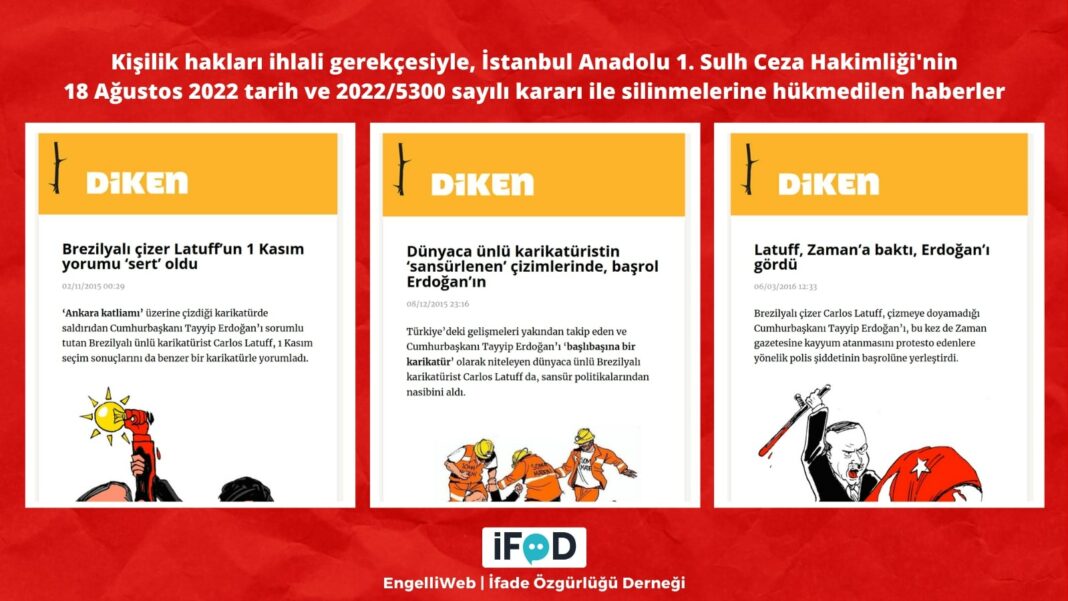A Turkish court has ruled for the deletion of 10 news pieces published by the Diken news website, each of which includes a cartoon of Turkish President Recep Tayyip Erdoğan by Brazilian cartoonist Carlos Latuff, the Freedom of Expression Association’s (İFÖD) EngelliWeb initiative reported.
According to EngelliWeb, the İstanbul Anatolian 1st Criminal Court of Peace made the decision on Thursday on the grounds that the pieces “violated the personal rights” of the president.
Cumhurbaşkanı Recep Tayyip Erdoğan hakkındaki karikatürlerle ilgili haberlerin, kişilik hakları ihlali gerekçesiyle, İstanbul Anadolu 1. Sulh Ceza Hakimliği'nin 18 Ağustos 2022 tarih ve 2022/5300 sayılı kararı ile silinmelerine hükmedildi. https://t.co/0rRGJGGQrV pic.twitter.com/WT4BUvQ7hX
— EngelliWeb (@engelliweb) August 18, 2022
Latuff condemned the ban on social media.
“I’ve said it before and I’ll say it again. A society where cartoons are criminalized is NOT a democratic society. And of course, Turkey is anything but a democracy,” he said.
Turkish court has ruled that some posts containing cartoons I made of Erdogan should be deleted from social media.
I've said it before and I'll say it again.
A society where cartoons are criminalized is NOT a democratic society. And of course #Turkey is anything but a democracy. https://t.co/Cd0zYx2obK— Carlos Latuff (@LatuffCartoons) August 19, 2022
Latuff’s cartoon blog (http://latuffcartoons.wordpress.com) was also banned by a Turkish court in December 2015 and hasn’t been accessible in Turkey since then.
Latuff is a freelance political cartoonist whose works deal with an array of themes, including anti-Zionism, anti-globalization, anti-capitalism and anti-U.S. military intervention. He is best known for his images depicting the Israeli–Palestinian conflict and the Arab Spring events. He also harshly criticizes Erdoğan’s policies for being anti-democratic.
President Erdoğan’s Justice and Development Party (AKP) government increased its crackdown on critical media outlets and journalists in the aftermath of a coup attempt in July 2016, following which dozens of journalists were jailed, while more than 200 media outlets were closed down under the pretext of an anti-coup fight.
According to Reporters Without Borders (RSF), 90 percent of the national media in Turkey, which was ranked 149th among 180 countries in the RSF’s 2022 World Press Freedom Index, is owned by pro-government businessmen and toe the official line.



